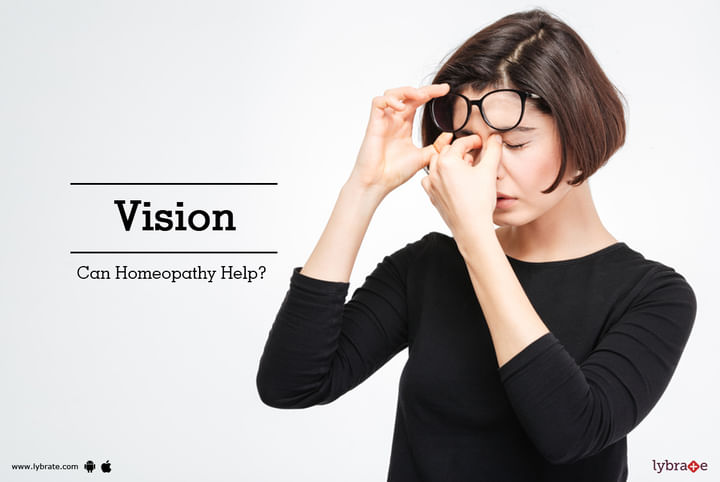Vision - Can Homeopathy Help?
While most of us complain of eye problems as pain or redness or itching or excessive tearing, there is more to it than what meets the eye! As with all diseases, the homeopath will try to unravel the problem in its deeper form. A detailed discussion to ask related symptoms happens, after which a diagnosis will be made. Treatment is then done accordingly which will not just get rid of the eye symptoms but also improve the overall health of the person.
Conditions like cataract and glaucoma need to be surgically corrected; however, others can be managed via homeopathic medicines effectively. The following are the top five homeopathic medicines described along with the symptoms in which they are used. A detailed discussion with your homeopath to arrive at the diagnosis should definitely precede the use of these medications. Self-medication is not advised.
Mercurius - Mercurial preparations are used when the following symptoms are seen:
- Thickened, red eyelids that are worse at night
- Profuse, offensive-smelling discharge that causes burning
- Boils around the eyes with pus formation
- Floaters in the eyes
- Worsens with warmth and damp weather
- Syphilitic eye infections
Belladonna: One of the most widely used eye remedies in homeopathy; it is extremely useful in the following situations
- Ophthalmic conditions with severe inflammation, dryness,
- Injected eyes with iritis or retinitis
- Fear of light (photophobia)
- Eyes affected due to excessive light or poor light
- Retinal hemorrhage conditions
- Sudden, acute onset of these symptoms
- Great intolerance to light
Euphrasia and Allium cepa: This is used as a combo, with both used in a similar situation but with contradicting symptoms. The person has symptoms similar to hay fever or cold.
While euphrasia is used where there is a bland nasal discharge and burning tears, allium is used when there is a strong burning sensation with nasal discharge. Some doctors even try one, and if it is not effective, they prescribe the other one. Other conditions where Euphrasia and Allium cepa are used include:
- Watery eyes that blink frequently
- Acute catarrhal conjunctivitis
- Bland and watery coryza
- Burning of the eyes with corrosion of the margins
- Opaque, blistering cornea with thick discharge
- Eye swelling improves when in open air, worsens in the evening and with light
Arsenica - This common homeopathy medicine is used in the following situations:
- Sharp eye pain caused by daylight
- Closing eyes produces pain in the eyes
- Running of letters when trying to read
- Affected tear ducts
- Cataracts
- Worsened during new moon and cold weather, improved with warmth.
These are some common homeopathy medicines, but again, as noted above, self-medication should be avoided. Any of these should be used only if prescribed by a homeopath.



+1.svg)
